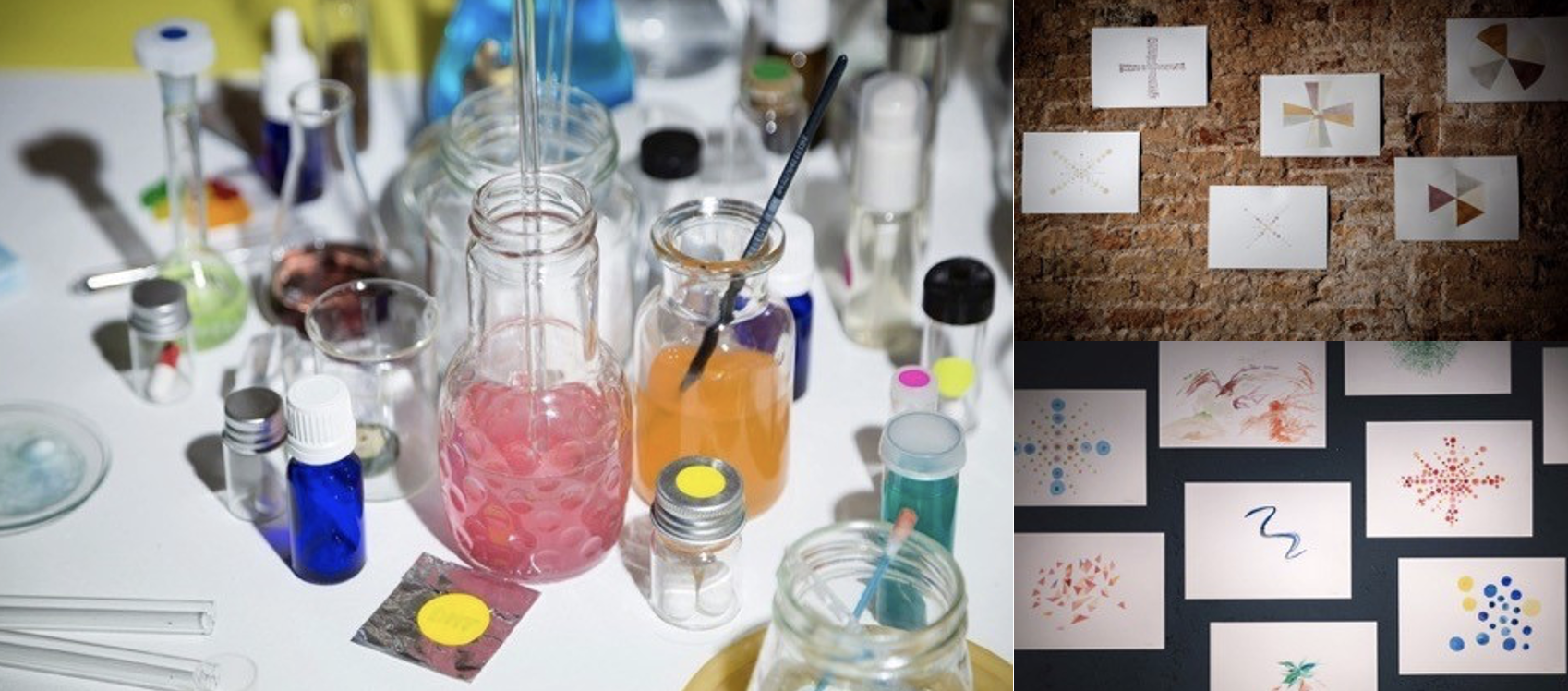
Category: Paintings
-
Pharmakon

Exposition name: Pharmakon
-
A Study About Brugmansias
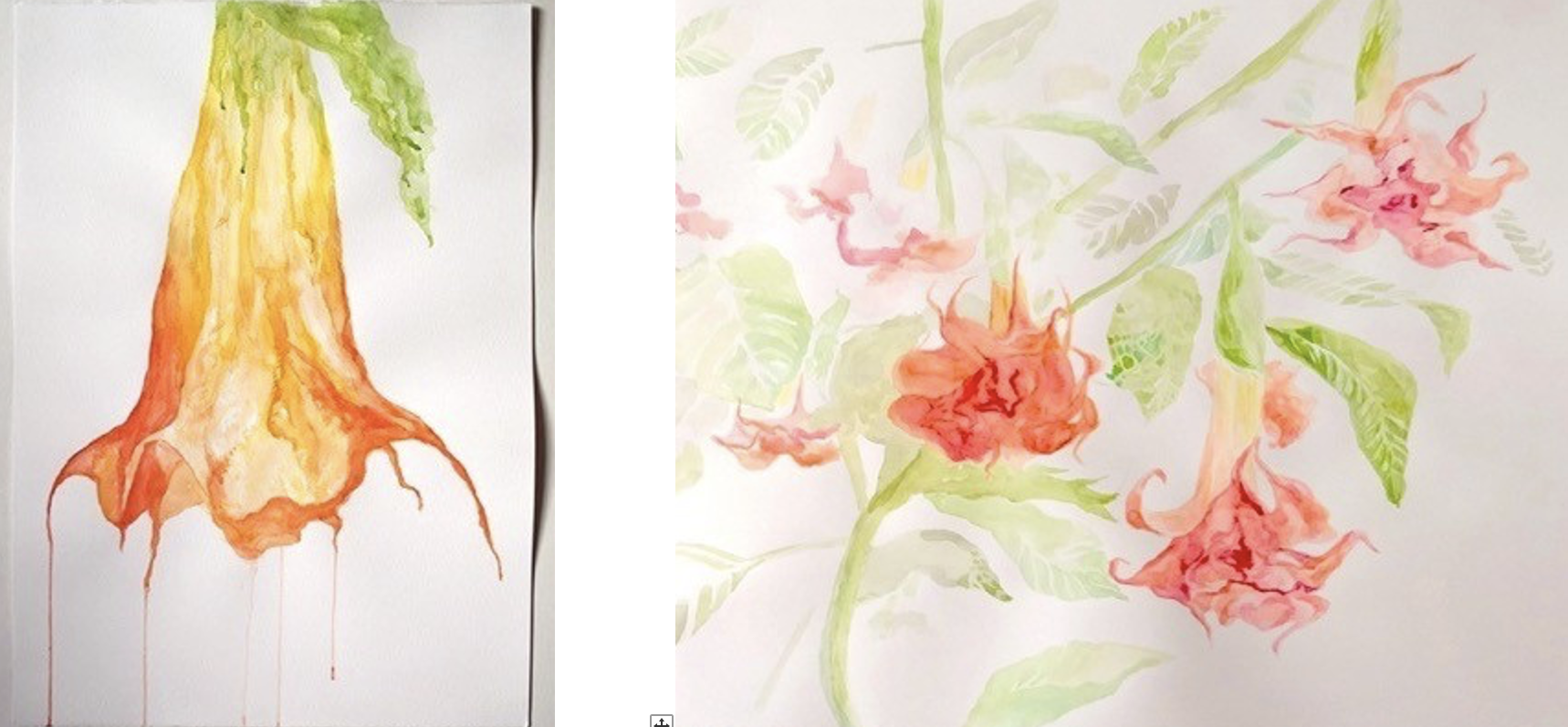
Exposition name: A Study About Brugmansias
Materials: Watercolor and Brugmansia water on cotton paper
Dimension: 50 cm by 40 cm & 70 cm by 90 cm
Date: 2019
Description: Evolved into multiple living spaces during the LILHA Residency Program in Nayarit, Mexico, in 2019. Together with the local community of San Francisco, we revitalized four separate gardens through a collaborative planting process. Plants were gathered through donations and exchanges, with contributions from participants who responded to open calls to join the collective effort of planting and regeneration. -
American Goddesses Xtabay
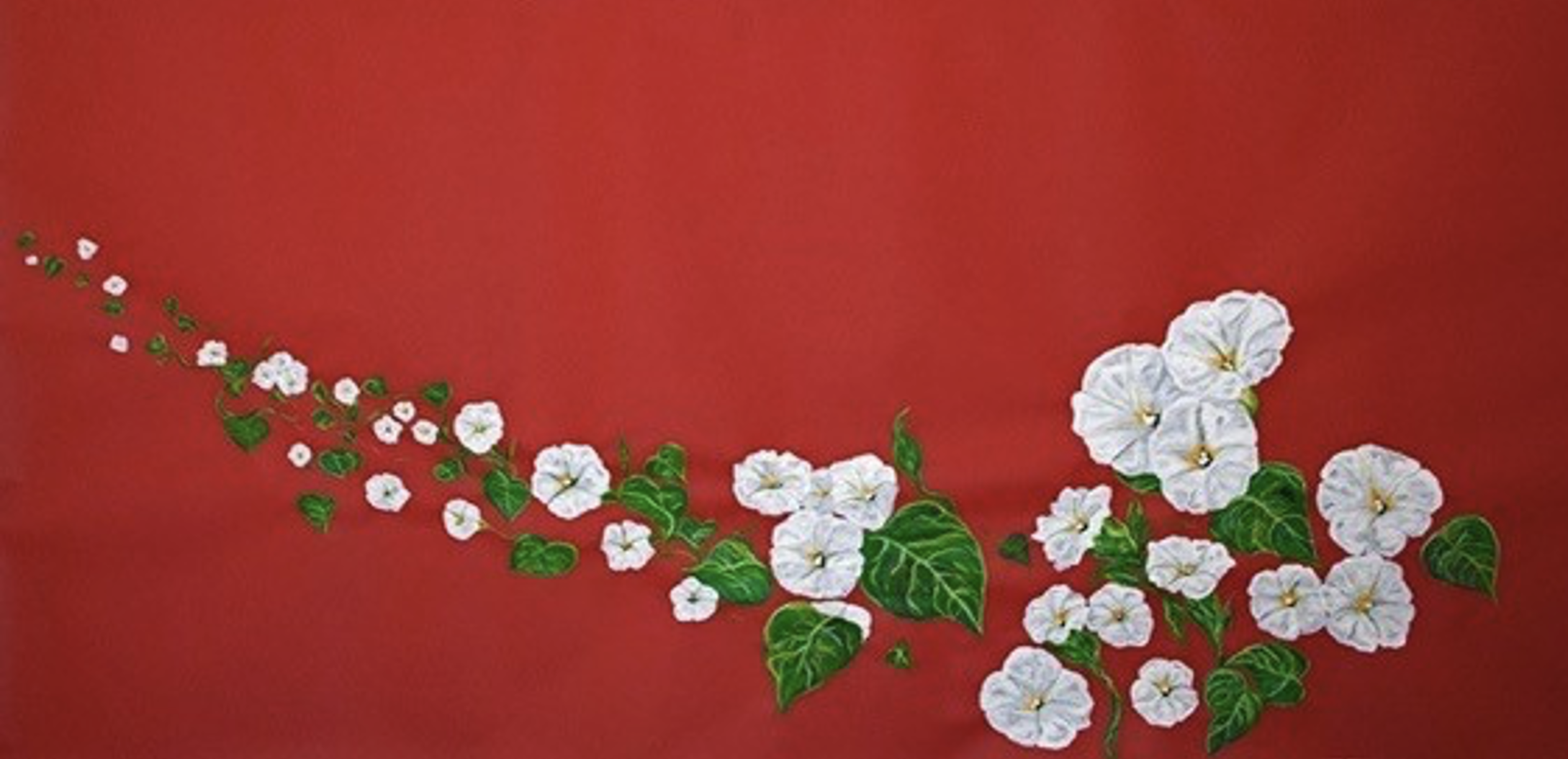
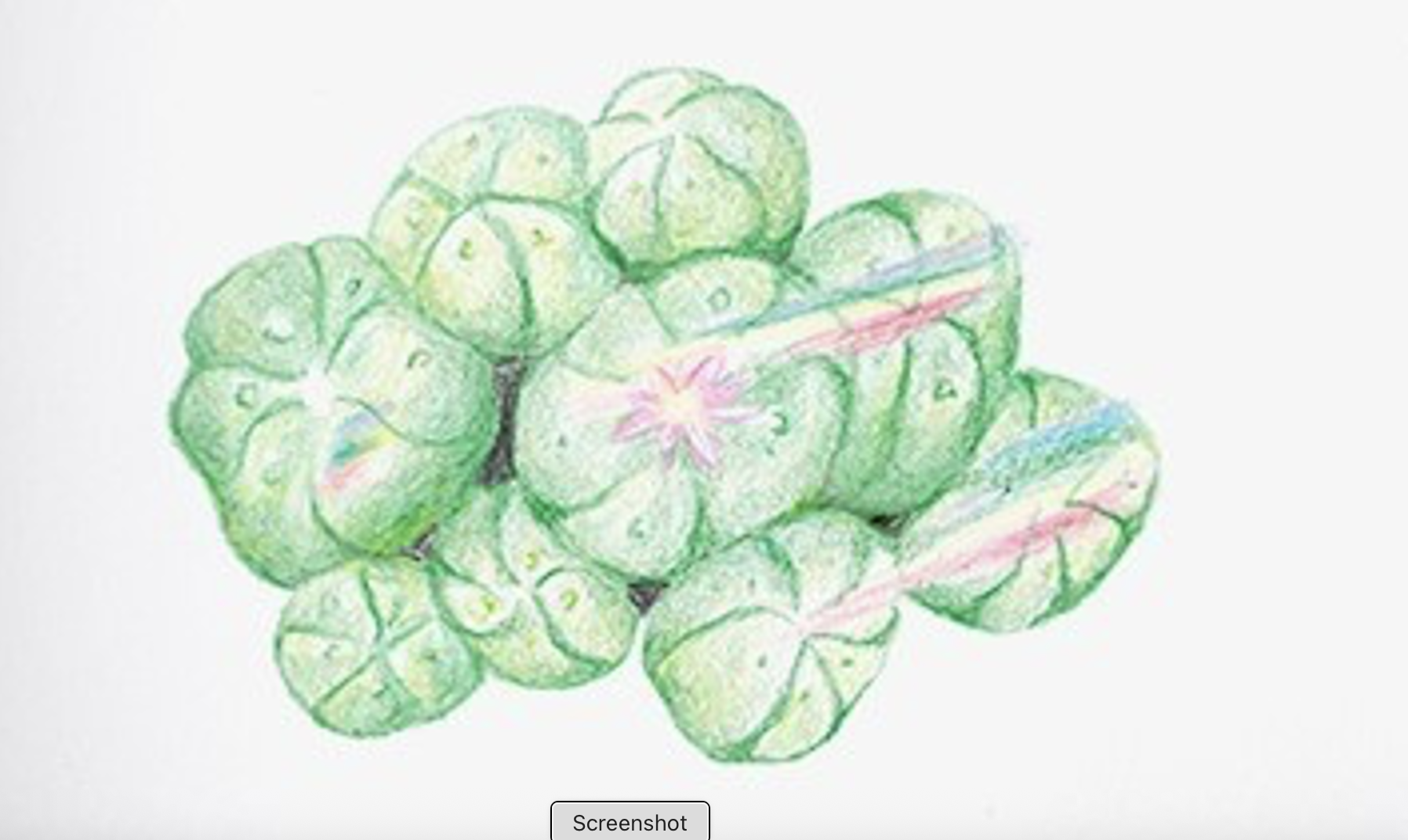
Exposition name: American Goddesses Xtabay
Locations: Private Collection
Type: Paintings
Materials: Acrylic paint on cotton paper, Color pencil on paper, paintings and drawings, watercolor.
Dimensions: Multiple
Date: 2019 – 2020
Description: The Mayan legend of the Ololiuhqui or Xtabentún flower tells of two sisters: Xtabay, kind, generous, and misunderstood for her open-heartedness, and Utz-Colel, praised for her purity but inwardly cold and envious. When Xtabay died, her body released a sweet fragrance, and from it bloomed a delicate white flower—the sacred Xtabentún, used ritually by the Maya for its psychoactive seeds containing LSA. She became a compassionate goddess, guardian of desperate souls. Jealous, Utz-Colel vowed that a more beautiful flower would grow from her body. Upon her death, a stunning cactus appeared, but with a foul odor—the Tsacam, reflecting her true nature. Furious, she pleaded with the Lords of the Underworld and was allowed to return in Xtabay’s form, but as a demon. Since then, she appears beneath the Ceiba tree, luring intoxicated men into the underworld. The legend contrasts superficial virtue with genuine compassion and honors the spiritual power of love and generosity. -
Street Herbaries
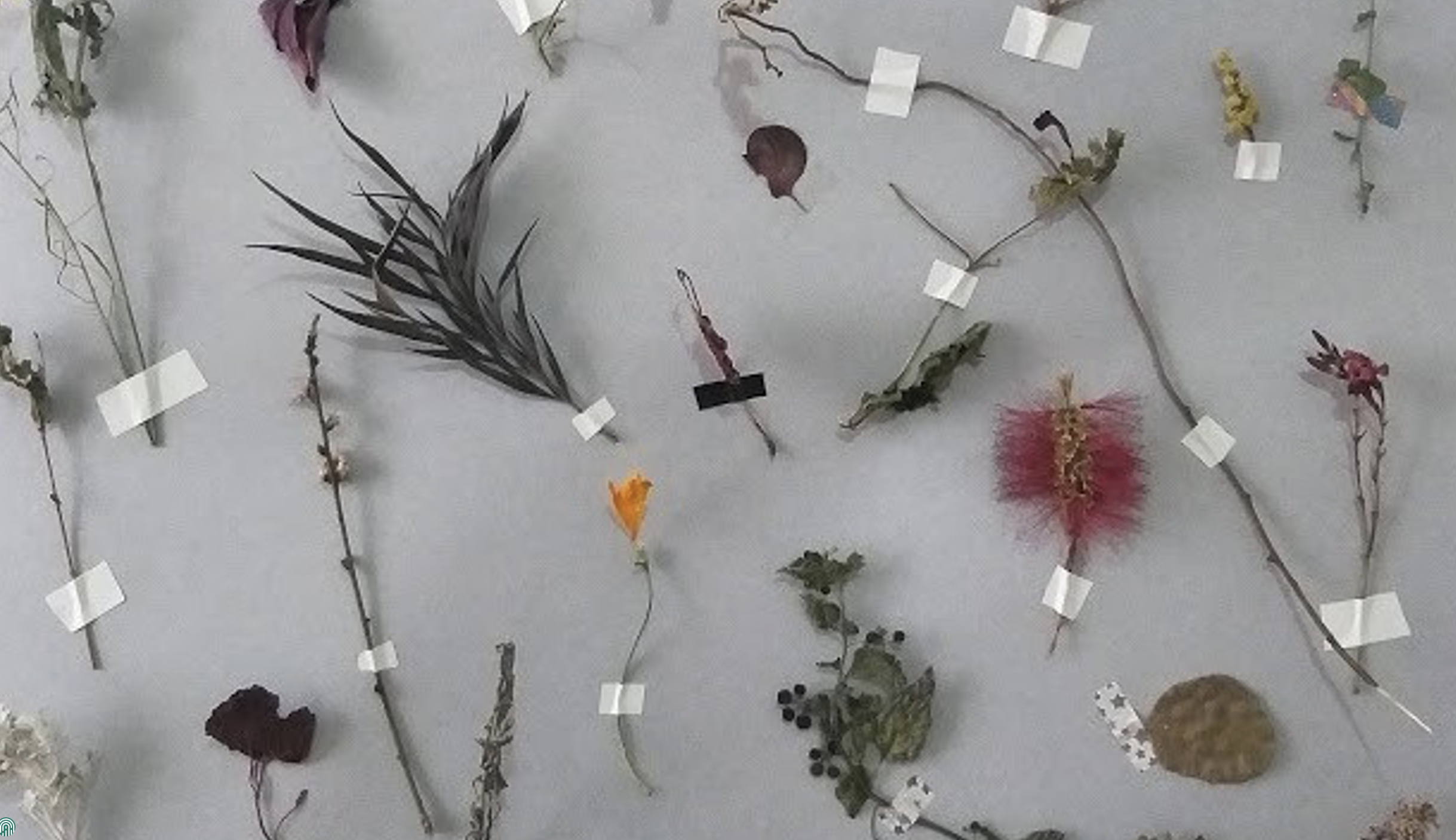
Exposition name: Street Herbaries
Locations: Colombia y México: Bogotá, Pereira, Guadalajara, Oaxaca, Cuernavaca, Nayarit, Ciudad de México, among others…
Type: Collection of vegetables samples, paintings and drawings.
Materials: Collage on paper dry part of plants, flowers and leafs
Dimensions: 21 cm x 28 cm & 1 m by 70 cm
Date: 2019 – 2020
Description: Explores the intersection of art, botany, and consciousness through a collection of vegetable samples, paintings, and drawings. The series Street Herbaries includes over 50 samples of entheogenic plants gathered from sidewalks in cities across Colombia and Mexico—Bogotá, Pereira, Guadalajara, Oaxaca, Cuernavaca, Nayarit, and Mexico City—mounted on colored paper sheets (21 x 28 cm), produced between 2019 and 2020. Plants such as Brugmansia, Ginseng, Ipomoea, Argemone Mexicana, and the Lisergic Rose are featured. The work HER (2021) continues this exploration with a 1 x 0.70 m collage composed of dried plant parts, flowers, and leaves collected from the streets, arranged on paper as a reflection on psychotropical biodiversity and everyday botanical encounters.
Back to the Art Expositions List >> -
Flower to Calm Down Pain
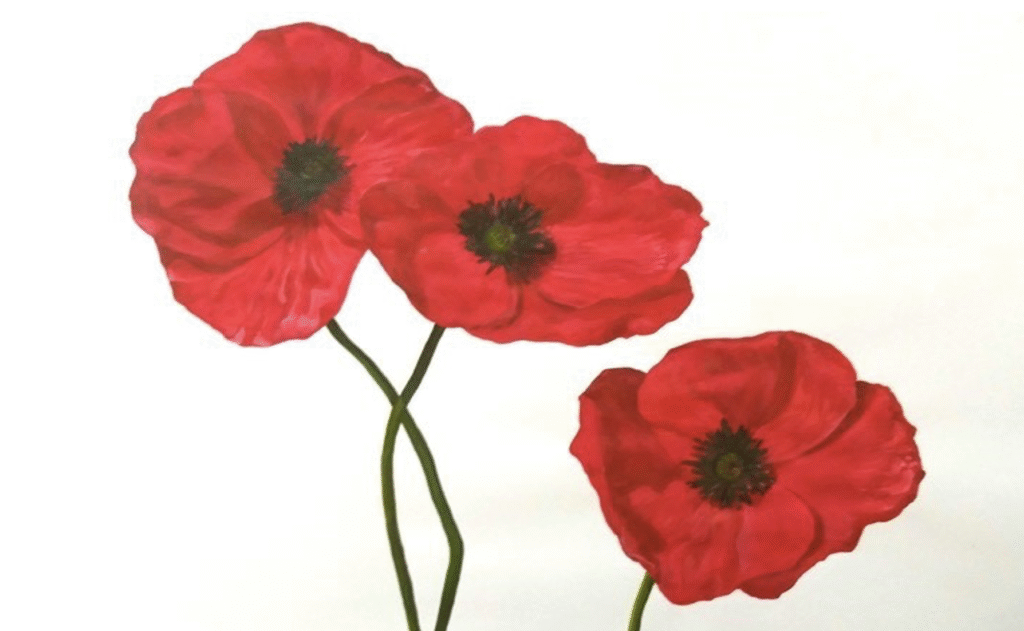
Exposition name: Flower to Calm Down Pain
Location: Private Collection
Date: 2021
Dimensions: 1 m by 70 cm
Material: Acrylic paint on cotton paper
Description: Ceremonial Vases to consume sacred plants. Variable dimensions. -
Sketches for Cemonial Vases
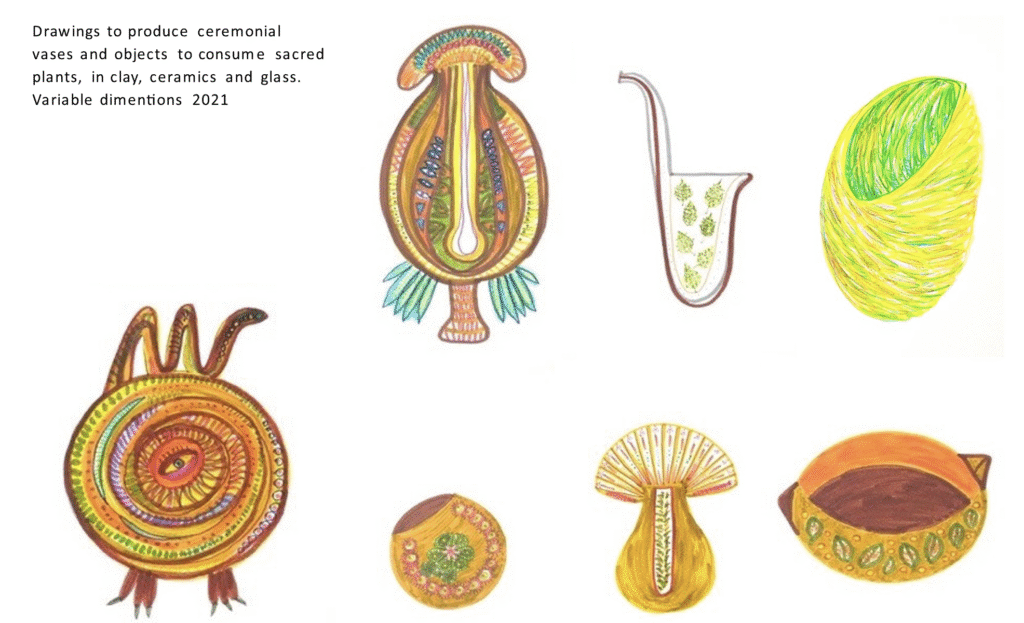
Exposition name: Ceremonial Sculptures & Plates (Pharmakon)
Location: Galeria del Agua Altzayanca. Tlaxcala
Date: 2021
Dimensions: Variable
Material: Clay, ceramics & glass
Description: Ceremonial Vases to consume sacred plants. Variable dimensions. -
Bhang
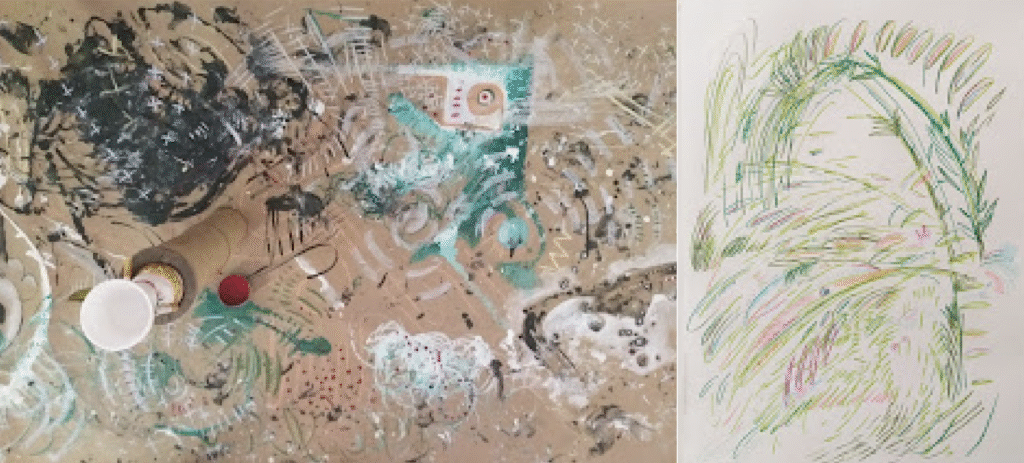
Exposition name: Bhang
Location: Multiple, México City
In collaboration with: Ariel Orozco
Date: 2021
Description: The Pharmakon Psychotropical Garden project brought together visionary art, ancient plant knowledge, and experimental cooking in a multisensory exploration of altered states and healing traditions. Among its highlights were the Paintings Under Four Grams, created during guided experiences with San Isidro mushrooms in collaboration with artists Ariel Orozco and Izq, capturing the intricate visions and emotional landscapes induced by psilocybin. Alongside this, the garden featured Cannabic Recipes, including Shiva’s Beverage, one of the oldest known cannabis preparations traced back to the Vedas over a thousand years before Christ. According to legend, Shiva, after a quarrel with his wife Pavarti, retreated to rest beneath a ganja tree; upon awakening, he was soothed and uplifted by the plant’s effect. Enchanted by its calming power, he incorporated it into all his recipes, starting with Bhang—a sacred drink traditionally made from crushed Indian nuts, yak milk, and cannabis. This preparation remains a ritual offering during Maha Shivaratri, the annual celebration in honor of the deity, and serves as a cultural anchor for the ongoing dialogue between plants, spirit, and creative expression explored in this psychotropical initiative.
Back to the Art Expositions List >> -
Pharmakon: Street Herbaries
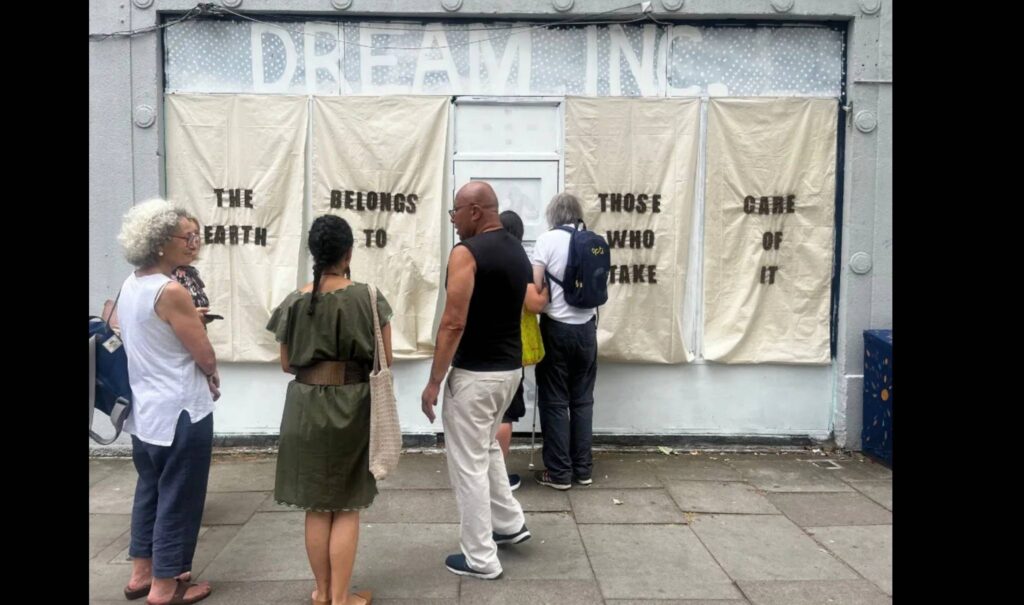
PHOTO: PHARMAKON AT SOMERS GALLERY 2023 LONDON
Exposition name: Pharmakon: Street Herbaries
Location: Multiple: London, Vienna, Mexico City, Barcelona…
Date: 2023
Description: Pharmakon explores the blurred boundaries between cure and poison, medicine and drug. Through a vibrant collection of more than 50 entheogenic plant specimens gathered from urban sidewalks across Colombia and Mexico—mounted on colorful papers—and a series of drawings and paintings, the work opens a critical dialogue around pharmacology, ancestral herbalism, and the political and spiritual dimensions of substances. Conceived as an experimental laboratory, the project reclaims Indigenous and popular knowledge systems, positioning the vegetal world as a site of healing, resistance, and psychotropical hope.